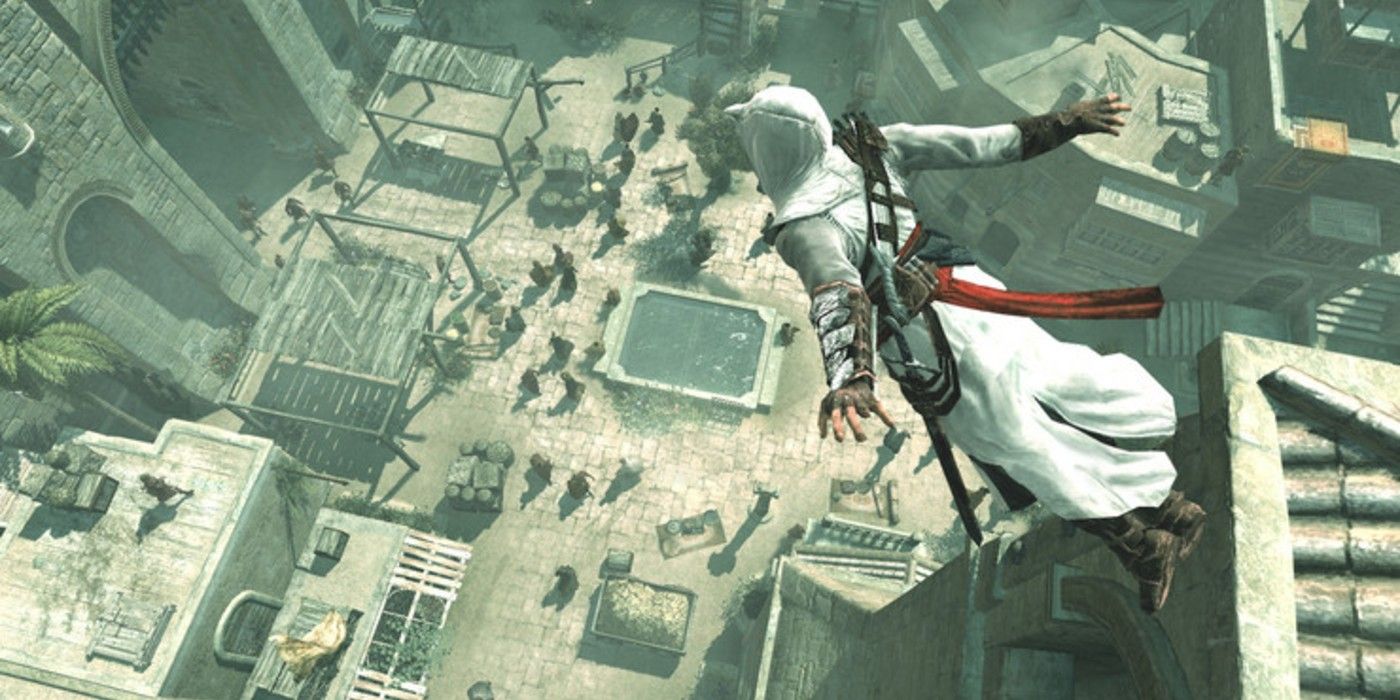The Assassin's Creed series is one of Ubisoft's most popular franchises, growing its fanbase and community since its original launch in 2007. The most recent installment, Assassin's Creed Valhalla, released Nov. 10, gave the franchise its best year since 2012 when Assassin's Creed III launched. With 12 titles in the series thus far, Assassin's Creed has a vast lore spanning several historical eras with a rich cast of characters. One of the less explored areas of lore is what the actual creed in Assassin's Creed is.
In early Assassin's Creed titles, players are Desmond Miles, using a machine called the Animus to relive memories of his ancestors who were members of the Assassin's Brotherhood. Through this experience, he carries out the organization's mission to ensure peace by taking out enemies throughout history. Though the franchise eventually shifts away from Desmond, the story is always focused on the Assassin's Brotherhood, the Animus, and their works, adding more lore with every Assassin's Creed game.
As the franchise title implies, the brotherhood had a creed, strictly adhered to by all members. The creed is different than the Oath, which all Assassins swear to when initiated into the order. Rather, the creed of Assassin's Creed itself is a strict marriage between a code of conduct and philosophy. It's comprised of one maxim, three tenets, and three ironies, which influence how members of the Assassin's Brotherhood think and behave when in the field.
What the Creed in Assassin's Creed Really Says
The cornerstone of the Assassin's Brotherhood philosophy is that nothing is true, but everything is permitted. Members of the Assassin's Brotherhood don't see this maxim as a guideline to be followed, but as an observation about the world. The pervasive belief is that the foundations of society, which seem strong, are fragile, and anything can be altered by one's actions, so long as an individual is willing to accept the consequences of those actions.
The first of Assassin's Creed three tenets is surprising for an organization of assassins, and that is to never harm an innocent person. Despite their violent methods, the Assassin's Brotherhood exist to ensure in peace above all things. The second tenet is much more expected, advising members to hide in plain sight. This allows assassins to sneak up on unsuspecting targets, then immediately blend back into the crowd, an important skill when looking at the third tenet, which is to not compromise the Brotherhood. "Never compromise the Brotherhood" seems a bit obvious for such an organization, but nevertheless an important rule to implement.
The three ironies are simply observations recognizing the diametrically opposed nature of the Assassin's Brotherhood. The organization seeks to keep peace, but commits murder to do so. They also try to make men more open minded, but still require obedience to their rules. In a similar vein, the Brotherhood warns of the danger of blind faith, though it is what they themselves practice. If Ubisoft were ever to add a fourth irony to Assassin's Creed, it would be that the Brotherhood calls the "creed" observations, yet expects its members to follow them like rules.


